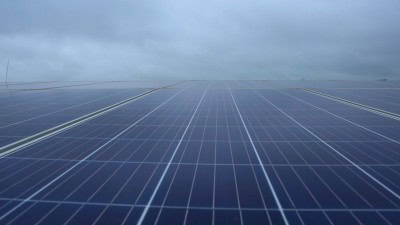New Delhi, July 29 : Renewable power producers will now be able to ensure round-the-clock supply to discoms and other consumers as the government has finalised new guidelines that will allow them to bundle their green power with thermal capacities.
The bundled power package will address a major drawback that renewable power (solar and wind) faces with regard to continuous electricity supply. While the solar power generation dips during night, the wind power generation peaks during monsoon and windy months. It remains largely under-utilised in other seasons.
As per the new guideline for procurement of round-the-clock power, released by the Ministry of New and Renewable Energy (MNRE), grid connected renewable projects can sign power purchase agreements (PPAs) with discoms for 24X7 supply where at least 51 per cent of the annual energy offered is renewable, and the rest from thermal sources.
The bundling will ensure that generators quote one single composite tariff for renewable energy complemented with thermal energy.
According to the notification, for supplying 24X7 power, generators will be required to maintain 85 per cent availability during the peak hours. The generator can combine storage for maintaining the minimum annual availability of 85 per cent.
Also, a minimum of 250 MW would be allowed to be bid under the scheme. Since a bidder can tie up with more than one thermal project for renewable energy, thermal capacities even much smaller than 250 MW can be used.
The new guidelines require a minimum of two qualified bidders for the project to be awarded. If the number of qualified bidders is less than two even after three attempts of bidding, and the procurer still wants to continue with the bidding process, it can be done with the consent of the appropriate commission.
The PPA under the new scheme will be for 25 years and can also be finalised for a longer period.
To efficiently assimilate large capacity of renewable energy with the existing grid infrastructure, adequate provisions need to be developed to complement solar/RE, which can be either in the form of storage or hybrids or bundling of different technologies.
“For that, a mix of thermal and solar, though a first of its kind, may be a viable alternative as it will result in more stable electricity supply, while at the same time putting to use the idle thermal capacity, installed across the country,” said Pinaki Battacharyya, co-founder and CEO of Amp Energy India.
The MNRE would have to streamline the bidding methodology in such a way that the bids must allow solar/RE generators to participate/bid for such bundled projects seamlessly with/without having prior thermal capacities at the time of bidding, he added.
The guidelines also provide for penalty for any shortfall in offering renewable power below the mandatory 51 per cent of the total power offered in a contract year. The penalty would be calculated at 25 per cent of the maximum indexed composite tariff payable during the year for each unit of the shortfall.
The net worth of the bidder should be at least 30 per cent of the estimated renewable energy project cost.
The MNRE came up with a draft plan to supply RTC power from renewable (solar, wind, and hydro) projects, which will be complemented with power from thermal projects earlier.
The Ministry had sought feedback from various stakeholders, including MoP, renewable energy associations and state governments and their power distribution companies.
Disclaimer: This story is auto-generated from IANS service.

